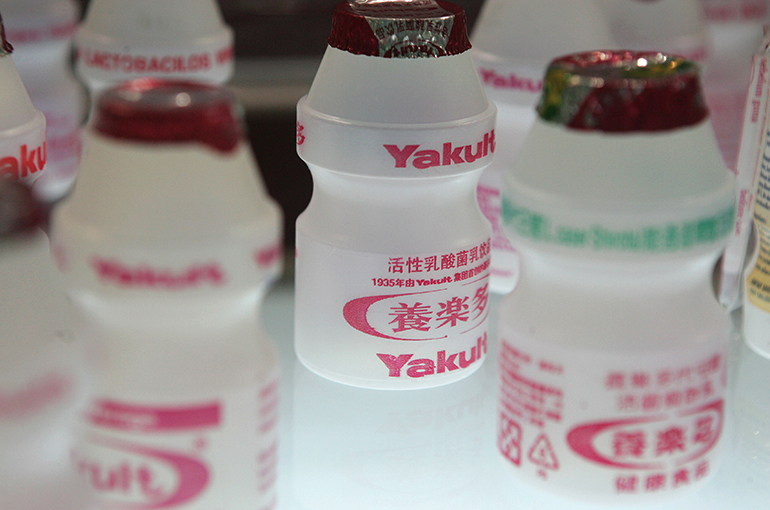 Japan's Yakult to Shut Second China Factory in Business Overhaul
Japan's Yakult to Shut Second China Factory in Business Overhaul(Yicai) Oct. 22 -- Yakult Honsha, a Japanese beverage giant best known for its probiotic milk Yakult, will shut down a second factory in China as part of a business reorganization to enhance its competitiveness and achieve sustainable growth in the Chinese market.
Yakult will close its first Guangzhou factory, operated by its Chinese arm Guangzhou Yakult, on Nov. 30, the Tokyo-based parent firm said in a statement on Oct. 20. With 1,896 workers, the plant produces Yakult’s signature probiotic milk.
Yakult shut down another Chinese factory in Shanghai early this year, relocating the manufacturing of related products to Tianjin and Wuxi. The company will only have four plants left in China after this latest closure.
Guangzhou Yakult was founded in 2001 as one of Yakult’s first manufacturing sites in China, with a registered capital of CNY395.6 million (USD55.7 million). Led by Yakult’s Chief Executive Officer Noriyuki Umehara, Guangzhou Yakult also operated a second factory in Guangzhou and one in neighboring Foshan.
The manufacturing functions of the first Guangzhou factory will be transferred to the two other local factories under Guangzhou Yakult, according to the statement.
The reorganization comes after several years of poor performance in China. Yakult’s sales in the country reached 816 bottles in the first half of this year, with an average daily sales volume of 4.5 million bottles. Despite these figures being slightly higher than a year earlier, they are still about 41 percent lower than in the same period of 2020.
There is no change in Yakult’s business expansion strategy for the Chinese market, the company noted, adding that it will continue to contribute to the health of its customers by promoting efficient operations and business expansion through the consolidation of resources.
Yakult established Yakult China Investment in Shanghai in April 2005 to oversee its Chinese operations. The subsidiary holds direct stakes in six companies dedicated to dairy production, trade, and other businesses in cities including Beijing, Shanghai, and Guangzhou. It also has 66 branches nationwide, 55 of which are active.
Editor: Futura Costaglione